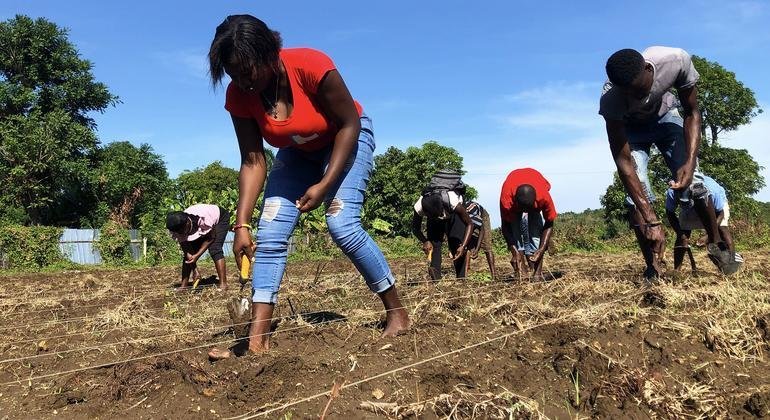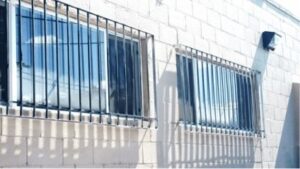Sure! Here’s the translation to American English:
—
Farmers in Haiti are facing a deep crisis marked by political and climatic challenges, along with a critical issue: the shortage of quality seeds. In the country, the available seeds often have germination rates barely reaching 40 or 50%, negatively impacting crop yields and compromising the livelihoods of producers.
To address this issue, the Food and Agriculture Organization of the United Nations (FAO) has established a partnership with the Ministry of Agriculture of Haiti. The goal is to improve seed quality by creating artisanal seed banks managed by the farmers themselves. These banks focus on cultivating high-quality seeds that are better suited to local conditions.
Pierre-Frantz Jacques, a retired farmer and director of the seed bank project, emphasizes that the inferiority of seeds is a determining factor affecting agricultural production in the country. Currently, Haiti has over 200 of these banks, whose purpose is not only to improve crop quality but also to reduce reliance on imported seeds and food.
The food situation in Haiti is alarming, with more than half of the population experiencing extreme food insecurity. This is further compounded by the rise in armed violence, which threatens agricultural production even more. In this context, seed banks emerge as a crucial resource to enhance productivity and improve food security in the most vulnerable communities.
Since the devastating earthquake of 2010, which left deep scars on the country, the FAO has implemented recovery strategies that prioritize the resilience of the agricultural sector. It has become clear that seed systems were insufficient, and efforts have intensified to establish banks that offer greater diversity and quality.
The FAO’s work extends beyond seed improvement; it also includes training farmers in better agricultural practices and financial management. Jacques notes that many farmers prefer to plant local species that are well adapted to their environment, which not only improves harvests but also revalues their agricultural traditions.
Additionally, the FAO provides equipment to ensure the proper preservation of seeds, a vital aspect in a country facing frequent climatic crises. This capacity to safeguard their seed reserves will allow farmers to maintain their production, even under adverse conditions.
Despite the enormous challenges and the ongoing threat of violence, Jacques asserts that these small but significant improvements can have a lasting impact on Haiti’s autonomy and food security. Resilience, as highlighted by Pierre Vauthier, FAO representative in the country, not only enables communities to regain their dignity but also empowers them to be active players in building their future.
—
Feel free to ask if you need any further assistance!
Referrer: MiMub in Spanish











